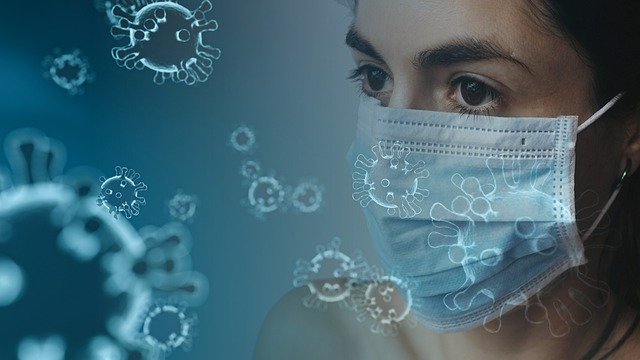Last updated on July 6th, 2023 at 03:32 pm

We are certainly living within surreal times. As Covid-19 continues to spread across countless geographic borders, the toll upon our society is become clear.
The good news is that this virus will eventually run its course. However, this might not be so comforting to hear if you are suffering from any underlying health condition like Obstructive Sleep Apnoea.
As the coronavirus is associated with several respiratory risks, it only makes sense that those who are suffering from pre-existing conditions such as obstructive sleep apnoea are concerned.
The Dangers of Underlying Conditions
Many who present with mild symptoms do not normally seek out any form of medical intervention. While this is good news for the general public, we need to look at those who might already be suffering from a chronic health problem — especially hypertension, diabetes and heart disease.
Those who are already suffering from sleep apnoea need to take this situation very seriously. Why is this the case?
Why is Sleep Such a Critical Factor?
Why is Sleep Such a Critical Factor?
We are all aware of the restorative power of sleep. Sleep helps us to repair our bodies. It heals muscles, allows us to absorb vital nutrients and provides us with a sense of mental clarity throughout the day. However, one of the most important benefits of obtaining a sound night of sleep involves the immune system.
Were you aware that those who obtain fewer than six hours of sleep on a nightly basis were up to four times as likely to catch a common cold?
When we then take into account how quickly this new virus spreads as well as its mortality rates, it becomes clear why sleep is so vital.
Even if you did catch this illness, the ability to obtain a sound night’s sleep would dramatically increase your chances of making a full recovery within a short period of time.
One of the issues associated with OSA is that you could very well believe that you are sleeping for seven or eight hours each night. However, this is of little benefit if your sleep is broken or if you are constantly awaking due to shortness of breath.
Those who use CPAP machines will obtain a much more profound rest, allowing their bodies to produce vital virus-busting substances such as cytokines and t-cells.
However, it would be irresponsible to claim that sleep alone will be able to stop coronavirus in its tracks. The fact of the matter is that there are numerous other practices which should now be embraced on a daily basis.
What Steps Can You Take?
Practicality and prudence will go a long way in this day and age. The good news is that the majority of steps which can be taken are relatively straightforward (albeit slightly inconvenient).
While many of these suggestions have been highlighted over the past few weeks throughout numerous news outlets, they are so important that each is worth mentioning again:
- Avoid touching your face.
- Be sure to wash your hands thoroughly with soap for at least 20 seconds.
- You can also use a hand sanitising solution when appropriate.
- Try not to touch any surfaces while out and about.
- When possible, work from home.
- Avoid large groups (such as those within a bus or train) whenever possible.
- Abstain from common greetings such as handshakes and hugs.
Social distancing is one of the most important recommendations, as the ultimate goal is to stop the spread of coronavirus. This will provide the medical community with the necessary “breathing room” to accommodate those who have more serious infections. Maintain a space of at least two metres from others while out in public.
If you suspect that you may have this virus, seek the advice of a medical professional and if necessary, self-isolate for 14 days. However, it is always better to speak with a physician to determine what other steps you might have to take.
Addressing the Condition of Your CPAP Machine
It is vital to mention that those who have been diagnosed with obstructive sleep apnoea should pay careful attention to the condition of their CPAP machines.
Do not stop using this machine due to the fear of infection. On the contrary, such an apparatus has been known to produce beneficial results in some patients.
It is still crucial that you regularly clean accessories such as all tubes, hoses, water chambers, and masks. This can help to prevent the spread of any germs that might already be present. Here are some suggestions to keep in mind:
- Using soap and warm water, immerse the tubing and mask for approximately 20 minutes.
- Hang the tubing vertically to ensure that all water properly drains.
- It is best to let these accessories air dry.
- You may also utilise solutions that have been specifically designed to disinfect CPAP machines (perhaps the best option).
Additionally, be sure to adhere to all guidelines in regards to replacing filters (these will depend upon the manufacturer).
As the expression goes, this too shall pass. However, we are living in very changeable times and those who already suffer from OSA will have to be particularly careful in order to ensure their health.
Please feel free to print out this article to be used as a guideline. Above all, remember that taking a proactive approach is arguably the best way to avoid becoming ill during these challenging times.
To order the At-Home Sleep Test click here
To shop for the highest-quality selection of CPAP devices click here


